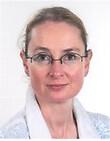Event reports
Mr. Meis underlined that development policy has gained significance in Berlin. With Germany having doubled the budget of the BMZ and quadrupled its humanitarian aid spending under the Merkel administration, the commitment is easily observable. Meis however explained that the German engagement in development policy isn’t just limited to financial pledges, but goes as far as an increase in multilateral efforts. With the challenges facing Europe becoming increasingly complex and interconnected to various root causes, Meis explained, only international cooperation and multilateral problem-solving approaches can be successful.
Mr. Meis explained that global institutions not only shape international relations but that they have a stabilizing effect. He further expounded on this notion by underlining how vital the work of multilateral organizations is, especially in times that are marked by transition and uncertainty. The KAS New Office, as emphasized by Mr. Meis, contributes as well to the very diverse German engagement in multilateralism. He further highlighted that in order for Europe to stay actively engaged in international bodies and to keep up a review and improvement mechanism that will allow major institutions to stay relevant and functional, a coherent und aligned transatlantic position would be vital. If international bodies aren’t regularly reformed and molded to fit prevailing challenges, Meis warned that they might face the emergence of new regional bodies. In this context the Asia Infrastructure Investment Bank could be seen as a case in point.









